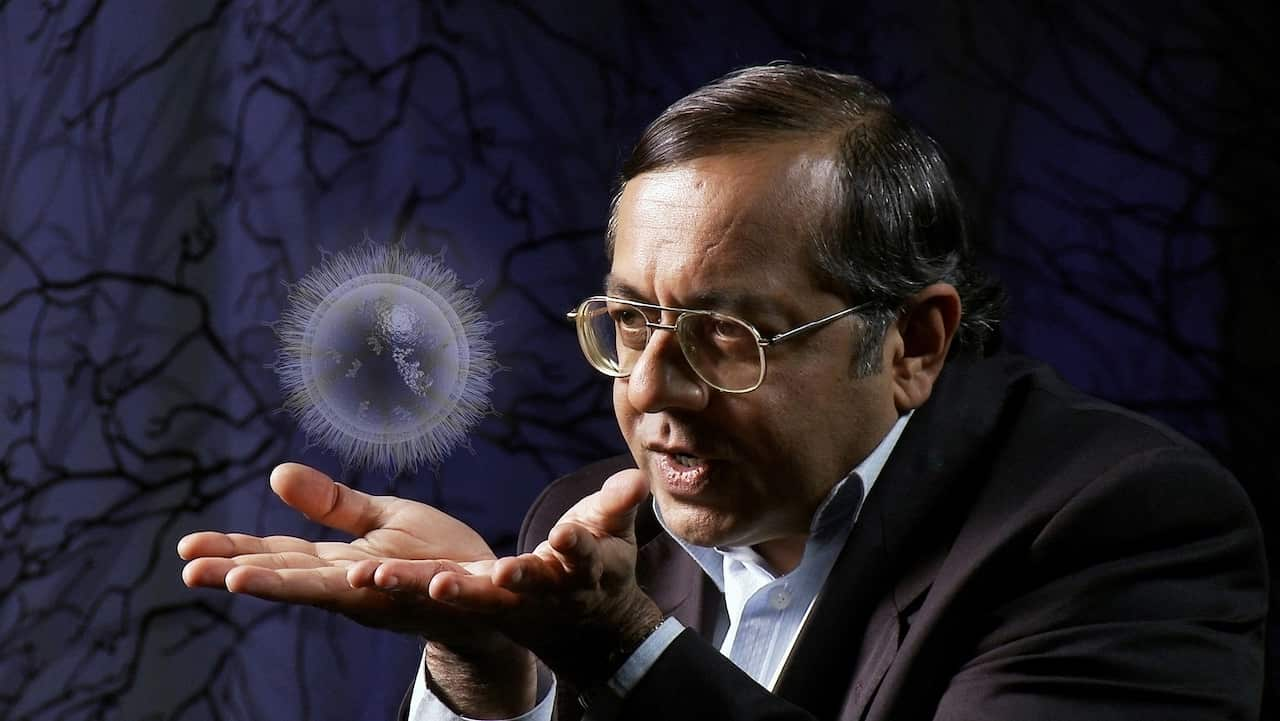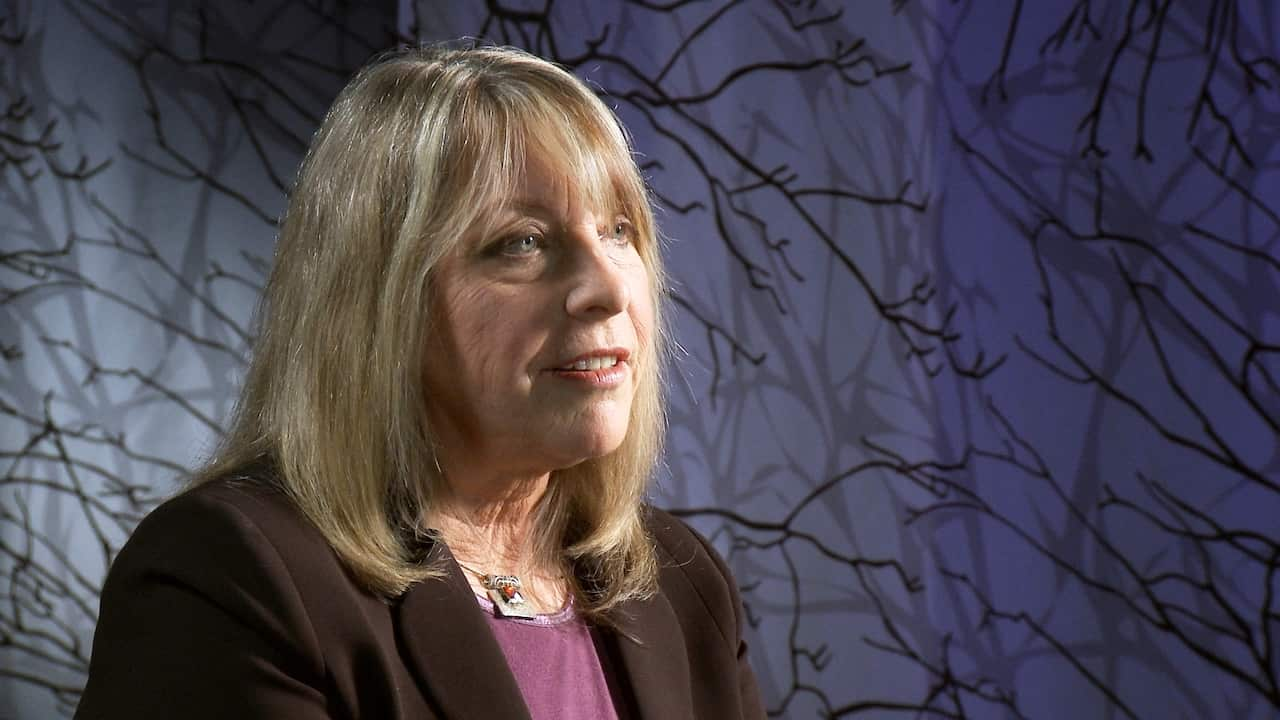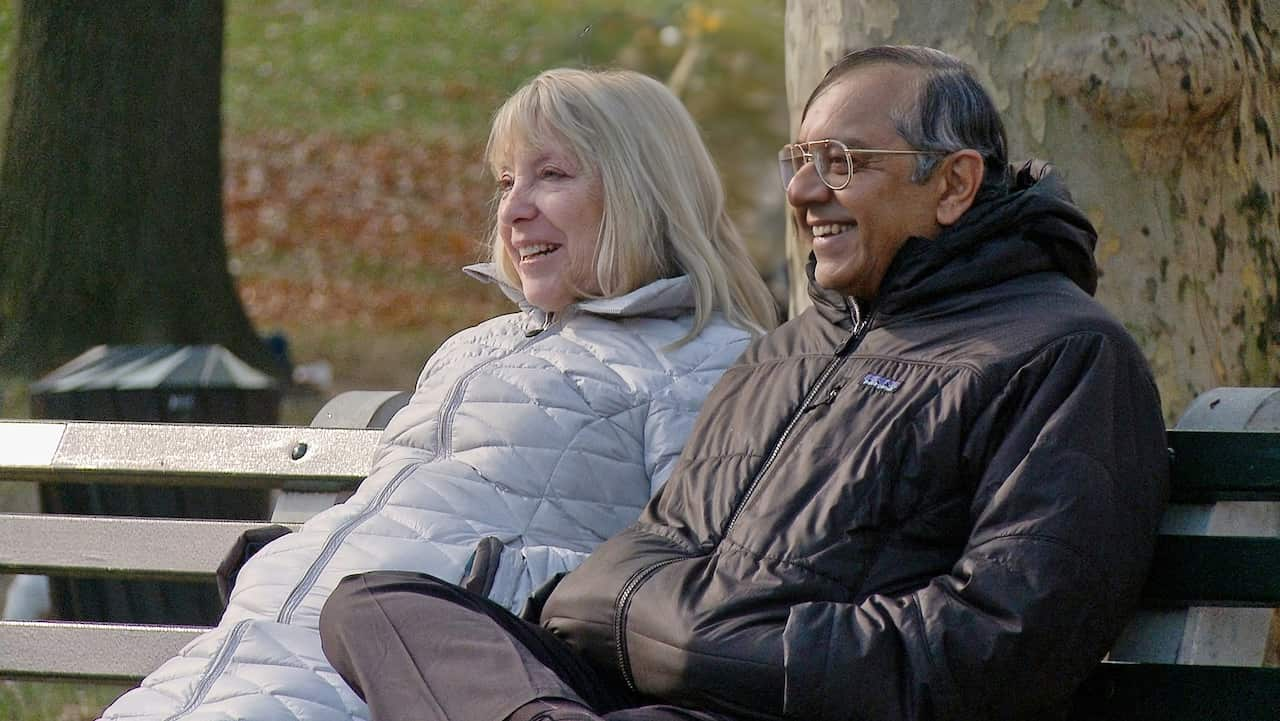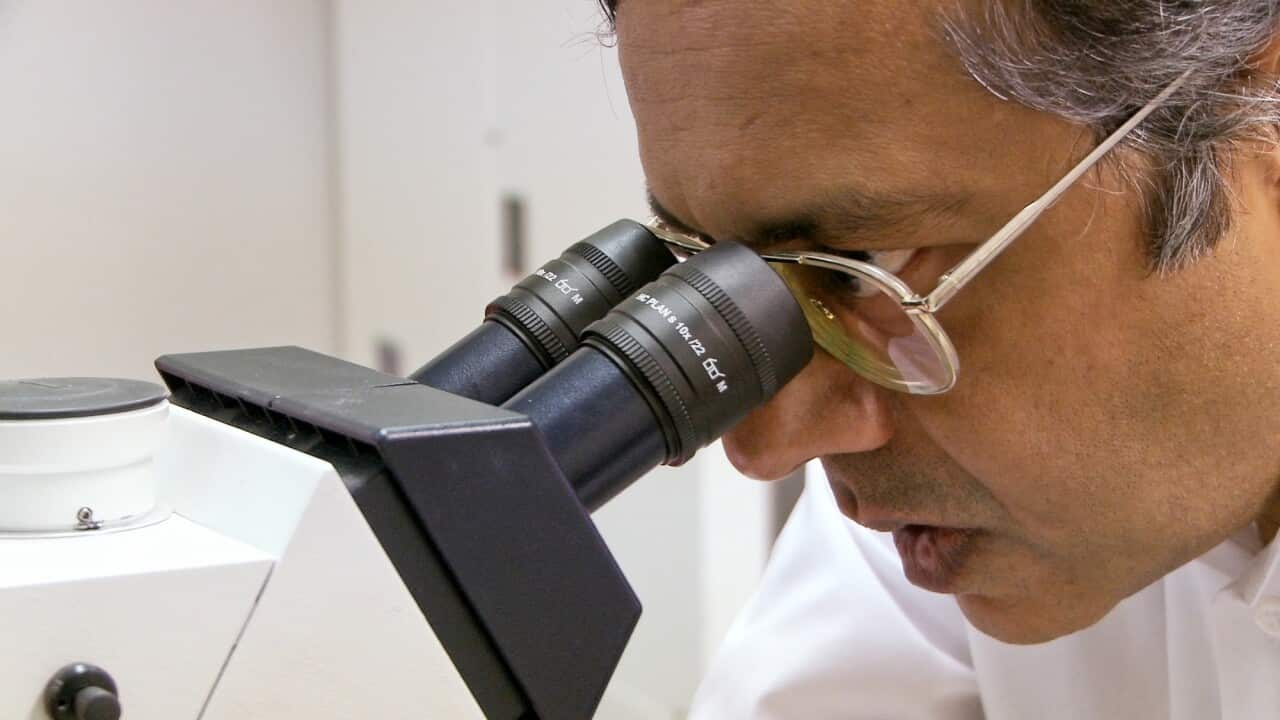Cancer can kill appalling quickly. For two dedicated Australian researchers, bringing their revolutionary cancer treatment to market has been the opposite: frustratingly slow. But for almost 20 years, scientists Himanshu Brahmbhatt and Jennifer MacDiarmid have persevered, convinced their idea could forever change the treatment of a wide range of cancers, including some for which there is currently no cure.
The challenges they have faced – and some moments of extraordinary hope for human and canine cancer victims – are captured in two-part documentary The Cancer Killers. It shows just how insanely expensive developing a treatment can be, along with the determination required to keep going, even in the face of doubt from investors or other researchers.
But it also shows what drives the pair: an unwavering belief that their innovative idea can save millions of people. With more than 20 million people around the world diagnosed with cancer each year, and many of the almost 10 million deaths from cancer each year due to those that currently have no cure, such as advanced pancreatic cancer, the toll is huge, and rising. It’s also personal.
Right back at the start of their scientific journey together, the pair lost a colleague to cancer.
“Jennifer and I were at the hospital and he said, 'You know, if someone can do it, you can do it’. He pointed his finger at like this to us. ‘You can do it’. I just can't forget his eyes when he said that. Just … You know, it's just the impact of that; it's horrific,” Dr Brahmbhatt says in the opening stages of Cancer Killers.
"I thought, 'Stupid man. What have I done with my life?’” The desire to give hope has remained with him to this day.
“I think that the primary motivator was really watching the agony and suffering and that continues to this day where we repeatedly see people coming to our doorstep in absolutely horrific conditions. And again, I just keep looking in the eyes of people because there is that last glimmer of hope where people don't want to hear that the doors are closed.
"I think that is the biggest driver and motivator to this day. Nothing's changed,” he says, when SBS talks to him about the pair’s ongoing work.
The biggest weapon in fighting many cancers is chemotherapy. The problem is that the side effects of chemotherapy can be awful. Brahmbhatt and MacDiarmid’s idea, the EnGeneIC Dream Vector, or EDV, eliminates those side effects by loading the chemotherapy drug into bacterial nano-cells (tiny particles) that can be directly targeted at cancer cells. The treatment also involves stimulating the body’s own anti-tumour immune response.

It's an idea with huge potential, but as the documentary makes clear, getting a scientific breakthrough to market – making it available for use – can be incredibly difficult. The success rate for companies like the pair’s EnGeneIC is very low, in part because the amount of money required to fund trials is staggering. Brahmbhatt and MacDiarmid are constantly fighting to find the funds they need to keep their work going.
“I think that that is where we underestimated everything from the start,” Dr Brahmbhatt says. "Given that we were scientists to start off with and just emotional people, the cruel world of the dollar had never occurred to us."
"It never occurred to us that it would be so difficult for something that was so blatantly obvious that, I mean, I remember saying to some of the people, what rights are you putting on a human life? … we met a lot of people who just wanted to make a quick buck and did not care at all about what we were really trying to do or achieve and how unique this technology was.”

Dr MacDiarmid says their strong partnership has helped them survive these challenges.
“At times it has been hard. And we thought we would have deals and be on our way 10 years ago. Really, we have been a bit flabbergasted at how slow people are to see what we have.
“One of the reasons is it's novel and it's out of the box and it's left field. And I've got a saying about everyone wants to be first to be second, because they don't want to being on a trial, they don't want to take a risk. And in big companies, and even with clinicians, they don't get fired for saying no.
"And so, we've had to prove a lot more than what some of the companies that make an incremental advance have to do to even get an audience. So that is a shock to us, but we bounce back very well. And I think it's a factor of having two people who can bounce ideas off each other and just go, okay, well that was shit, but we'll move on.”
In Cancer Killers, Brahmbhatt talks about MacDiarmid being tough; she talks about him seeing the big picture. And they have found a way to bring those complementary strengths to all the challenges they face, from the lab to the boardrooms.
“Every morning we … start the morning with a discussion and a debate, and we always do that before we start work, and it is the most refreshing part of the day because so many things come together so quickly because Jennifer thinks of one thing, I think of something else, we come to a consensus view very, very fast and we solve problems very fast,” Dr Brahmbhatt tells SBS.

Their efforts together may have seen them face funding frustrations, but it has also delivered amazing moments of success, captured in Cancer Killers: dogs with cancer making amazing recoveries after treatment with EDV, and seen dashing about in the documentary, and promising results from early trials in humans, too, as the treatment is offered to compassionate case patients (end-stage patients who have exhausted all other options).
Progress with the EDV is about to take some major steps: a 144-patient pancreatic trial is underway in the US, trials are about to start in Australia and Singapore for brain cancer patients, a trial is planned in the UK for people with mesothelioma, an aggressive cancer with no current cure, and an “all-comers” trail (for a variety of cancers other than those in the focused trials, Dr Brahmbhatt explains) is planned for Australia.
After watching Cancer Killers, it’s amazing to see that things have got this far. The hurdles have been many, and there may be more to come, but for Brahmbhatt and MacDiarmid, the reward is obvious.
“Right now we have four patients with glioma who are way beyond their ‘use by date’ as compared with everybody else. And that's fabulous,” Dr MacDiarmid says, touching on some of the promising results.
Dr Brahmbhatt talks of being able to give hope where there has previously been none, including a woman with neuroendrocrine cancer who had exhausted all treatment options. After treatment with EDV, her tumours began to shrink.
“It's incredible to watch that and the glow [of hope] in the eyes of those patients, when I see that. There's nothing more satisfying than to see that because [previously] that patient has only got one thought at that point: ‘I have to wind up my affairs and I will die.’”
If the promising results continue in these various trials, Brahmbhatt and MacDiarmid’s determination could change cancer treatment forever.
“There is no room for resting until we get this out there,” he says in Cancer Killers. That’s early on in the documentary, but talking to the pair, it’s clearly as true now as it was then.
Two-part series The Cancer Killers is streaming at SBS On Demand. The Cancer Killers is subtitled on SBS On Demand in Arabic, Simplified Chinese, Traditional Chinese, Vietnamese and Korean. All episodes will be available with audio description.
Stream free On Demand

The Cancer Killers
